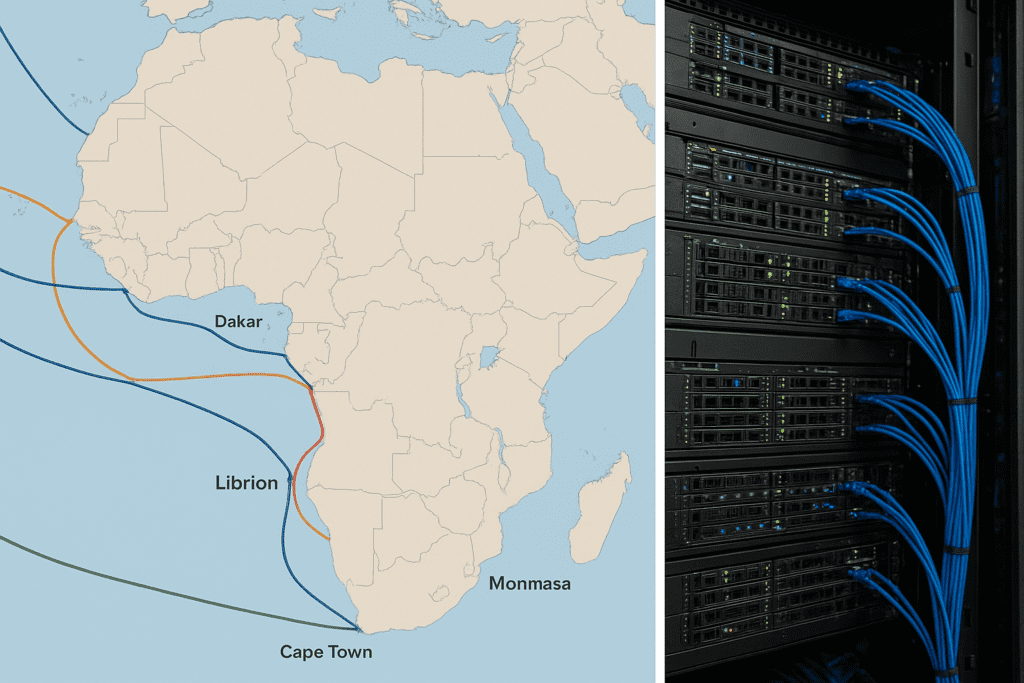Google is expanding its footprint in Africa with a bold infrastructure push that could reshape the continent’s digital future. The company has confirmed it will fund the construction of four major infrastructure hubs, one each in the north, south, east, and west of Africa. These hubs will connect Google’s latest subsea fibre-optic cables — Equiano and Umoja — to national networks.
According to Google’s Africa managing director, Alex Okosi, the initiative is fully financed by the company. “The funding will be coming from Google,” he told Bloomberg TV. Okosi added that this marks a fresh round of investment beyond the US$1 billion pledged in 2021, stressing that Google has already “surpassed” that original commitment.
Stronger Backbone for Africa’s Digital Future
The hubs will host vital infrastructure, including landing stations and data centres. Their role is to strengthen the backbone of internet access, which has long been costly and unreliable across much of Africa. Damage to undersea cables often causes widespread disruptions, a problem that Google hopes to ease with this project.

The Equiano cable, already landed along Africa’s western coast, and Umoja, which will link Africa to Australia via the Indian Ocean, are expected to come fully online this year. With the hubs scheduled for completion in three years, telecom giants like MTN Group and Vodacom could gain easier access to capacity, which may lower broadband costs for consumers.
Competition and Investment Race
Google’s announcement comes amid fierce competition among tech giants racing to tap Africa’s growing digital market. Microsoft has recently pledged US$1 billion to build a geothermal-powered data centre in Kenya and another US$300 million to strengthen artificial intelligence capacity in South Africa. These moves underscore Africa’s attraction as home to a young, tech-savvy population with rising demand for affordable internet and digital services.
Okosi stressed that the company sees Africa as a crucial growth region for advanced technologies. “For us, it is how we make sure that we are investing in Africa to make sure that the AI opportunity is realised,” he said.
Industry watchers believe these hubs could do more than improve connectivity. With faster, more resilient internet, Africa will be better positioned to expand cloud adoption, AI deployment, and digital innovation. For both businesses and consumers, this could mean reduced costs, improved services, and greater access to online opportunities.







No Comments